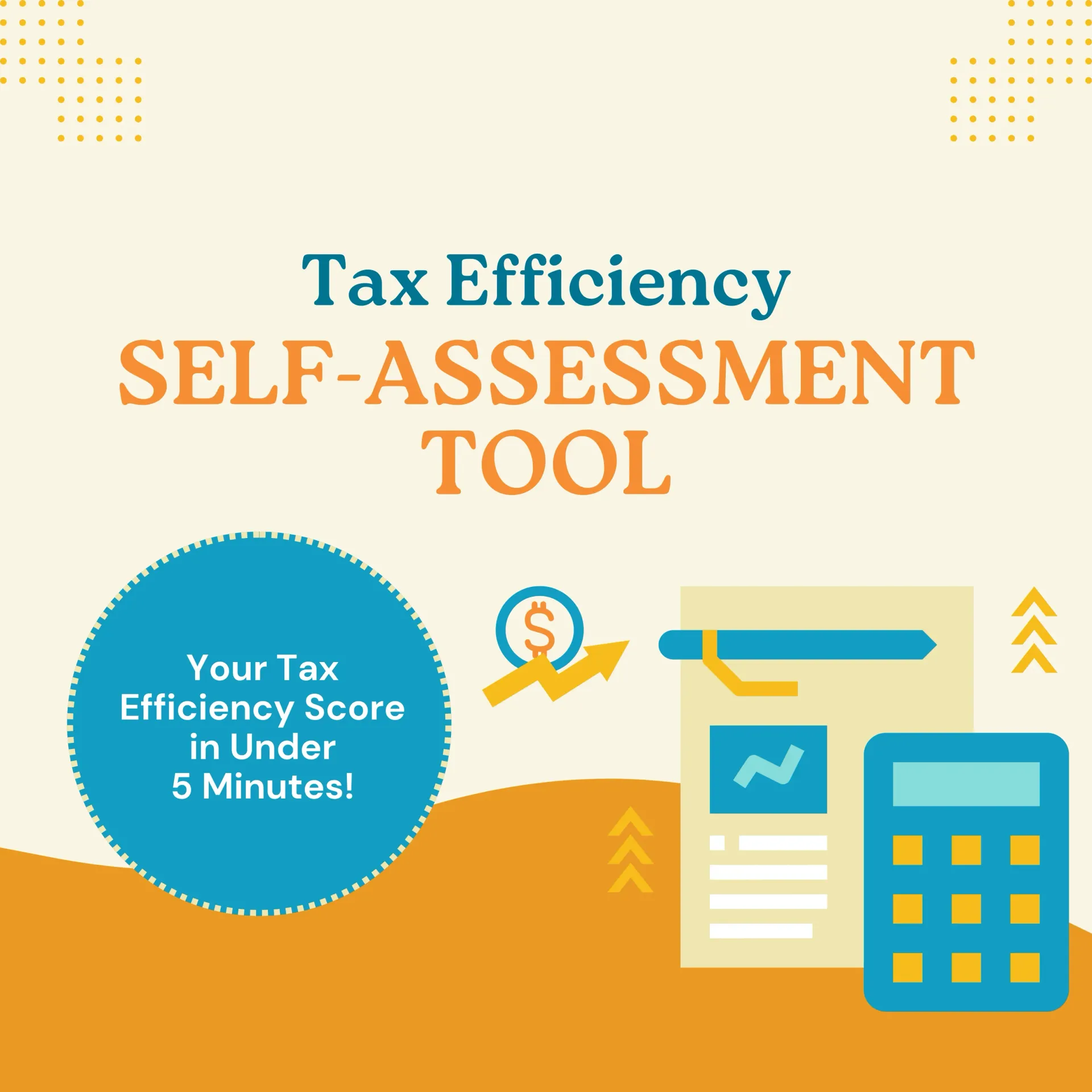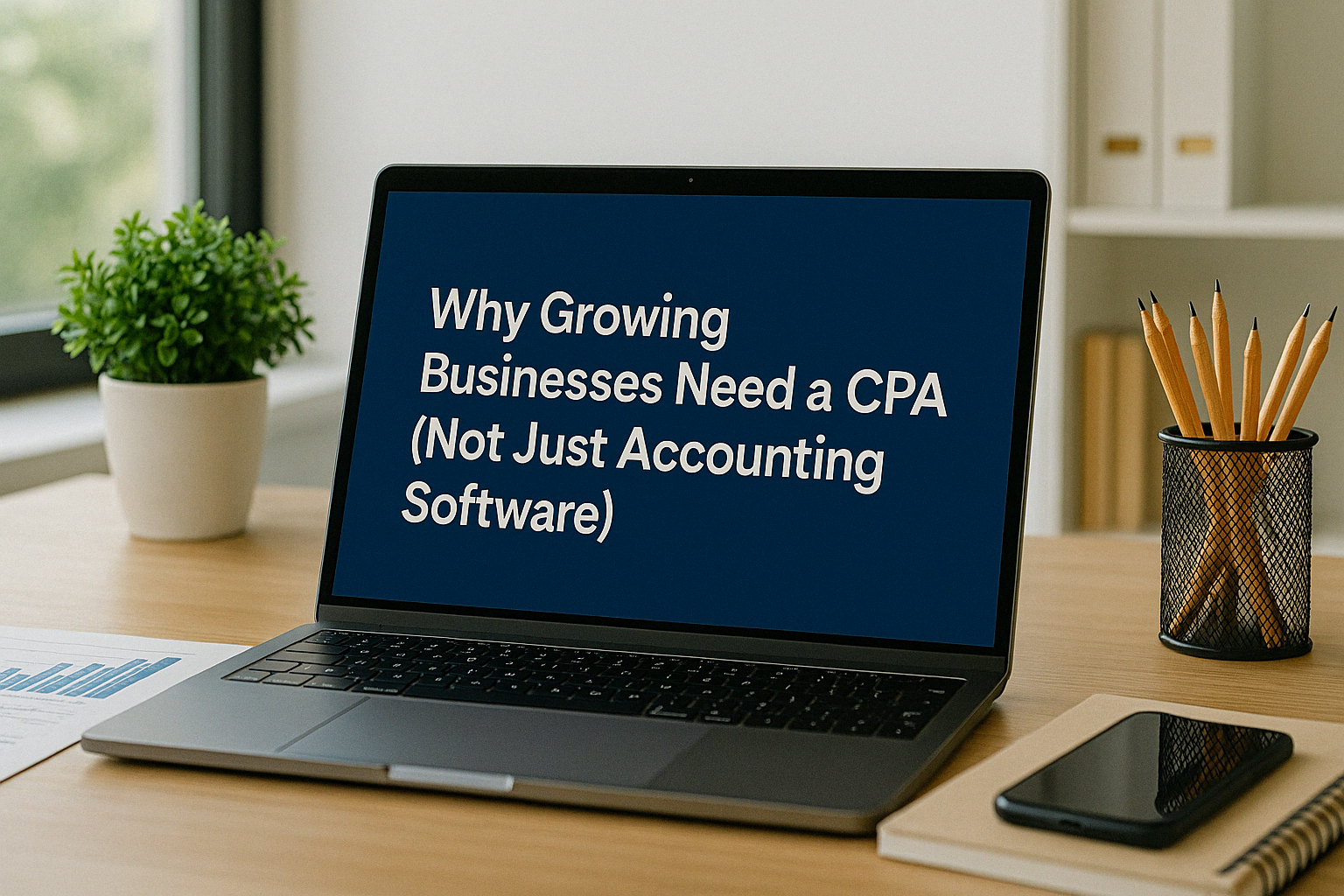Understanding Tax Implications of Selling a Business
Thinking about selling your business? That’s a huge decision, and while you’re probably focused on the sale price and finding the right buyer, don’t overlook the tax implications. At Straight Talk CPAs, we’ve seen entrepreneurs excited about their sale—only to realize too late how much taxes will eat into their profits.
Whether it’s understanding capital gains, navigating the nuances of an asset sale versus a stock sale, or implementing
smart tax strategies, we want to help you
protect your hard-earned money.
How Is the Sale of Business Taxed?
So, how does the IRS view the sale of a business? Generally, it’s not seen as selling one big entity. Instead, the IRS treats each asset within the business separately. This classification determines whether the sale is taxed as long-term capital gains or as ordinary income—and that can make a big difference in your tax bill.
- Long-term capital gains apply to assets held longer than 12 months and are taxed at a maximum rate of 20% for most taxpayers.
- Ordinary income tax rates can be as high as 37%, depending on your individual tax bracket.
Since capital gains tax rates are significantly lower than ordinary income tax rates, proper planning is crucial to
minimizing your tax burden.
Asset Allocation: What It Is and Why It Matters
Sellers prefer most of the sale to be taxed as capital gains to save on taxes. However, the IRS has specific rules:
- Inventory sales are taxed as ordinary income.
- Capital assets held for more than a year are taxed at the lower capital gains rate.
Buyers, on the other hand, often prefer asset sales where they can allocate more of the purchase price toward deductible expenses and depreciation. This means
asset allocation must be carefully negotiated to optimize tax benefits for both parties.
Asset Sale vs. Stock Sale: What’s the Difference?
When selling a business, you have two main options: asset sale or stock sale. The choice affects tax consequences for both the seller and the buyer.
Asset Sale
In an asset sale, you transfer individual business assets to the buyer. This includes:
✔
Tangible assets – buildings, equipment, and inventory
✔
Intangible assets – customer lists, trademarks, and goodwill
Tax Implications for Sellers
- If structured improperly, C corporations may face double taxation—once at the corporate level and again when distributing proceeds to shareholders.
- S corporations, LLCs, and partnerships usually avoid double taxation, with gains passed directly to owners. However, gains may be taxed as ordinary income rather than capital gains.
Tax Implications for Buyers
- Buyers typically prefer asset sales because they get a "stepped-up cost basis," reducing future capital gains tax.
- Depreciation resets, allowing the buyer to write off assets over time.
Stock Sale
In a stock sale, the buyer purchases ownership shares rather than individual business assets.
Tax Implications for Sellers
- Generally, stock sales qualify for capital gains tax rates, which means lower taxes for the seller.
- No depreciation recapture or allocation of income as ordinary.
Tax Implications for Buyers
- Buyers may be less interested in a stock sale since they inherit the company’s existing tax liabilities.
- They do not get a stepped-up cost basis, which affects future tax savings.
Since buyers and sellers have different tax interests,
negotiation is key to structuring the best deal.
Strategies to Minimize Capital Gains Tax
Nobody wants to hand over more money to the IRS than necessary. Consider these tax-saving strategies when selling your business:
1. Hold the Business for Over a Year
If you’ve owned your business for more than a year, you generally qualify for long-term capital gains tax rates (0% to 20%), which are lower than ordinary income rates.
2. Take Advantage of Qualified Small Business Stock (QSBS)
If your business is a C corporation, you may be able to exclude up to 100% of your capital gains from federal taxes if you’ve held the stock for at least five years.
3. Use a 1031 Exchange
If your business includes real estate, a 1031 exchange allows you to defer capital gains tax by reinvesting in a similar property. This strategy requires reinvestment within 180 days of the sale.
4. Invest in a Qualified Opportunity Zone (QOZ)
By reinvesting proceeds into a Qualified Opportunity Zone, you can defer and potentially reduce your tax liability. Holding the investment long-term can even eliminate capital gains tax after 10 years.
5. Sell to an Employee Stock Ownership Plan (ESOP)
Selling your business to employees through an ESOP allows tax-deferred gains and can eliminate capital gains tax under certain conditions.
6. Use a Charitable Remainder Trust
Placing your business in a Charitable Remainder Trust (CRT) lets you sell assets tax-free while receiving an income stream and supporting a charity.
7. Structure an Installment Sale
Rather than taking all the proceeds at once, an installment sale spreads income over multiple years, reducing your annual tax burden.
8. Offset Gains with Capital Losses
If you have
capital losses, you can use them to offset gains,
reducing your taxable income.
The Importance of Professional Tax Advice
Selling a business is complex, and tax implications can significantly impact your final profit. To ensure you make the best decisions, work with a tax professional who understands your business structure and financial goals.
At Straight Talk CPAs, we specialize in helping business owners navigate tax strategies for selling their businesses. Whether you’re looking to reduce capital gains tax, structure a favorable sale, or reinvest proceeds wisely, our team is here to guide you.
Discover Your Tax Savings Score in Minutes!


Salim is a straight-talking CPA with 30+ years of entrepreneurial and accounting experience. His professional background includes experience as a former Chief Financial Officer and, for the last twenty-five years, as a serial 7-Figure entrepreneur.





